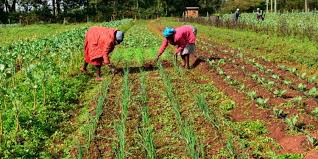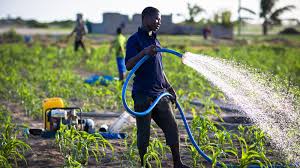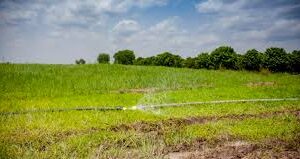Starting a small farm in Northern Ghana can be an exciting venture. It allows individuals to connect with the land and support their communities. However, it requires careful planning and dedication.
In this article, we will provide a step-by-step guide on how to begin this journey. We will discuss essential factors like choosing the right crops, understanding the local climate, and managing resources effectively.
Additionally, you will learn about common challenges and how to overcome them. By the end of this guide, you will have a clear roadmap to start your small farm in Northern Ghana.
Steps Involved in Starting a Small Farm in Northern Ghana
1. Choose the Right Crop
To begin your farming journey, the first step is to choose the right crops. Consider the local climate and soil conditions. Certain crops thrive better in Northern Ghana’s environment. For instance, maize, millet, and groundnuts are popular choices. Additionally, research market demand. This knowledge helps you select profitable crops. By aligning your choices with local needs, you increase your chances of success.
2. Prepare the Land
Next, prepare your land. Start by clearing the area where you want to farm. Remove any weeds or debris to create a clean space. Then, test the soil. This step is crucial because it helps you understand its nutrients. You may need to add fertilizers to improve soil quality. Afterwards, plough the land to make it ready for planting. These initial preparations lay the foundation for a fruitful farm.

3. Plant Seeds
Once your land is ready, it’s time to plant your seeds. Follow the guidelines for each crop regarding planting depth and spacing. Proper planting ensures that each seed has enough space to grow. Moreover, keep track of the planting season. In Northern Ghana, the main farming season usually starts with the rains in May. Timely planting can make a significant difference in your yield.
4. Maintain the Land
After planting, focus on maintaining your farm. This includes watering your crops, weeding regularly, and protecting them from pests. Use natural pest control methods whenever possible. For instance, planting certain herbs can deter harmful insects. Additionally, keep an eye on the weather. Northern Ghana experiences dry spells, so be prepared to irrigate your crops if necessary. Consistent care will lead to healthy plants and a bountiful harvest.
5. Prepare for Harvesting
Finally, when it’s time to harvest, do so carefully. Use the right tools to avoid damaging the crops. After harvesting, store your produce properly to maintain its quality. Consider selling at local markets or directly to consumers. Building relationships within your community can help you find buyers. Ultimately, a successful small farm not only feeds your family but also contributes to the local economy.
In conclusion, starting a small farm in Northern Ghana is a rewarding endeavour. By choosing the right crops, preparing your land, planting wisely, maintaining your farm, and effectively harvesting, you set yourself up for success. With determination and effort, you can create a sustainable source of food and income. Remember that challenges may arise, but with resilience and knowledge, you can overcome them. Embrace this journey and enjoy the fruits of your labour!
Read Also: Top 4 Sacred Sites in Northern Ghana and Their Significance
5 Practical Personal Finance Tips for Residents in the North








